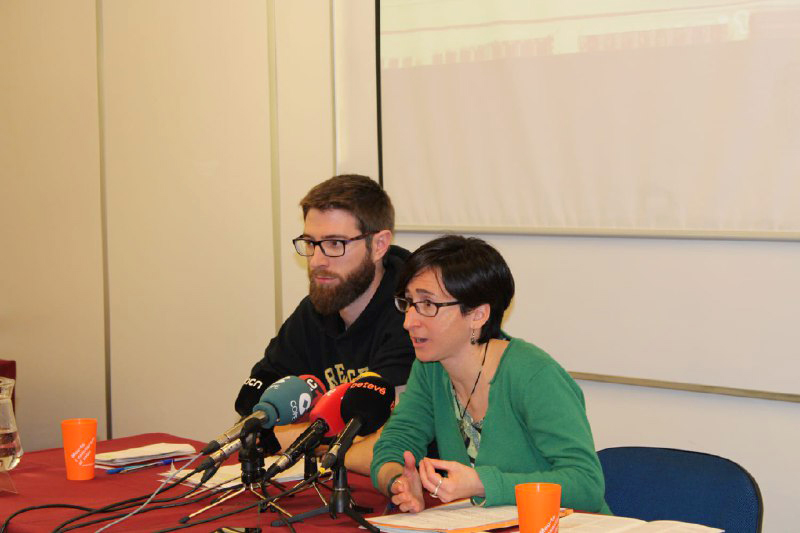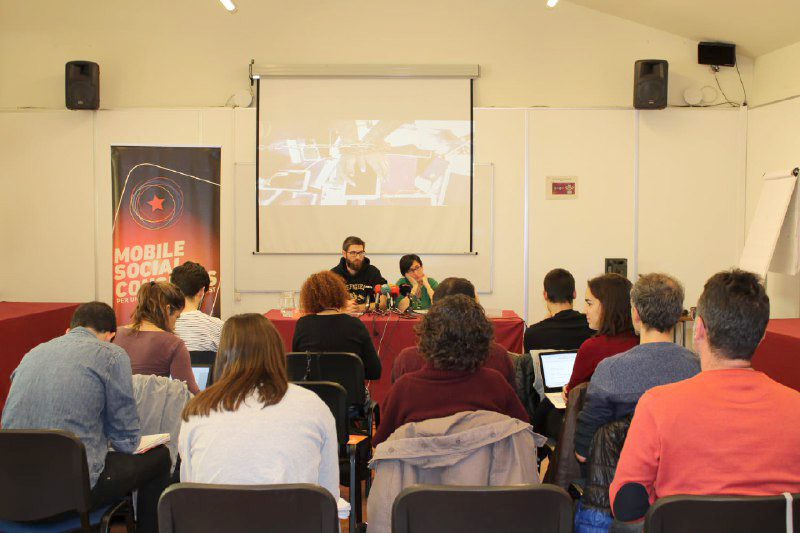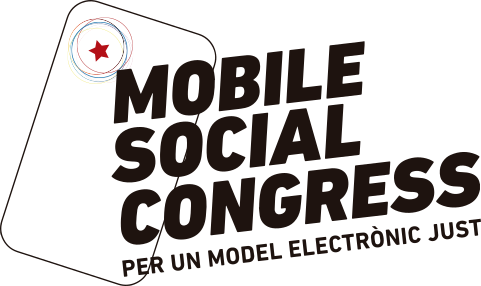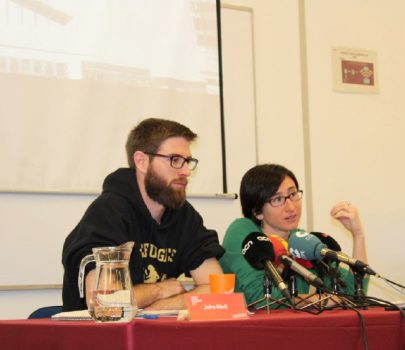- This Monday, the program for the fourth edition of the Mobile Social Congress was presented. This event seeks to encourage debate on the social and environmental impact of the electronics industry hidden by the Mobile World Congress.
- The Congress will be held on February 26 and 27, at the same time as the MWC. Speakers from all around the world will participate, along with Catalan social entities that already have an alternative model for consuming electronics and technological services.

“The Mobile Social Congress is not meant to be an ‘anti-MWC’ or the social side of the Mobile World Congress. It’s a space for citizens to come together and reflect on the way information and communication technologies are produced and consumed. Our current model involves serious violations of human rights, especially labour rights, and has serious environmental impacts that are hidden at the Mobile World Congress.” With these words, Mobile Social Congress coordinator Laia Fargas Fusa defined the event held on February 26 and 27 in Barcelona, at the same time as the Mobile World Congress (MWC). The MSC was presented to the press this Monday morning at Pati Manning, where next week’s sessions will take place with the participation of lecturers from around the world, as well as organizations from Catalonia’s social and solidarity economy that already work with alternative models for consuming electronics and technological services.
In response to the insistent questions from the press on the possibility of being integrated into the Mobile World Congress, Laia Fargas responded that the decision to present an alternative model to what is promoted at the MWC without taking part in it directly is a “political decision”. SETEM Catalunya and the other European and Catalan organizations working together on the MSC interpret the Congress as “a campaign in itself” that lasts all year round, even if it does take physical form for two days in Barcelona in February. The MSC seeks to shine a light on questions involving the tech industry that are silenced by the MWC, like the serious social and environmental impacts of the current model of production and consumption. At the same time, it seeks to serve as a platform for the experiences, organizations and groups that build technological sovereignty using a more sustainable model.
A comprehensive look at the impacts of the electronics industry’s full supply chain, from the mine to the dump
The 2019 Mobile Social Congress will take an all-around look at the impacts of the electronics industry’s supply chain, from the mines where raw materials are obtained to the dumps where most devices end up shortly after being sold. The guiding thread of this year’s MSC will be “modern slavery” or “slavery 2.0”: special emphasis will be placed on the industry’s environmental impact, as well as its social impact on workers. One of the reports presented this year focuses on the connection between the risk of suicide among those working in the electronics industry in China and the precarious working conditions in the factories that provide for the world’s main electronics brands. The Congress will also look at the erosion of workers’ rights in European countries where the industry has a significant presence, such as Hungary or the Czech Republic.
On February 26, the MSC will start with a showing of the documentary Projecte Mòbil (Mobile Project) and a round table presenting reports on the social and environmental impact of mining in Chile, Armenia and Zambia. This first day of the Congress will focus on working conditions in the electronics industry and their connection to suicide among Chinese factory workers, as well as the erosion of workers’ rights in Eastern Europe. A simultaneous “restart party” and “install party” will also be held, with teams specialized in repair and installation using different free software tools. Participants will learn how to lengthen the lifespan of their electronic devices, as well as how to take back control of communications and data using free software.

Day two of the MSC will focus on the potential of responsible public purchasing in demanding that the electronics industry respect workers’ rights. The Congress will examine positive initiatives from different public administrations, including the Barcelona City Council. In addition, it will look at examples of collaboration between the solidarity economy, companies and the public sector to promote the reuse, repair and recycling of electronic devices. Finally, alternatives will be presented with a workshop on the responsible use of mobile phones, another on the co-creation of free cloud tools, and a third workshop with a role-playing game that will help participants learn to control the data we share over the internet.


